The Undaunted series, designed by esteemed collaborators David Thompson & Trevor Benjamin and published by Osprey Games, is terrific. Let’s not mince words. With four installments and a substantial expansion, the series has yet to miss. There’s something for everyone, provided everyone is a fan of approachable World War II-themed two-player skirmish games.
Undaunted: North Africa is the second, and driest, installment in the series. The moisture content in this box, when compared to the beaches of Normandy or the snow-covered streets of Stalingrad or the skies above Great Britain, is objectively lower. There are other things to consider when choosing a board game, of course, but it feels worth specifying that you’ll want a tub of Pond’s and some Neutrogena sunscreen handy.
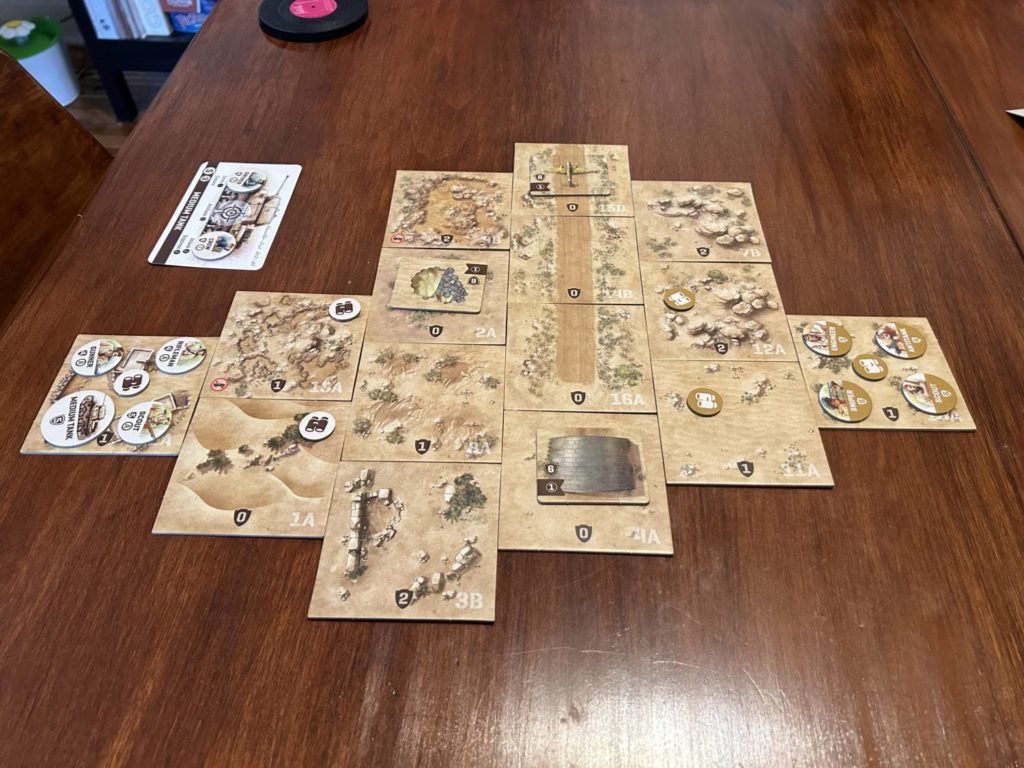
Why Undaunted?
The Undaunted system marries deck-building to skirmishing. There’s a select audience—myself included—for whom that immediately sells the game, but most of Those People already know about it. If you’re reading this, you’ve probably lived a different life. Maybe gone outside more.
Across the series, each player controls either Axis or Allied forces. Your specific units are represented by tokens on the board, and those tokens are controlled by cards. Each round, both players draw a hand of four cards, choosing one to discard as a bid for initiative. Highest initiative goes first, which can be a big deal depending on the state of the board. It’s almost always better to be setting the immediate terms than it is to be responding to them.
Bidding for initiative is the first masterstroke in this system. You only have four cards, and you will probably want all of them. The more powerful the card is, the higher its initiative value will be. You regularly have to make tough decisions between bidding more in an attempt to go first, forgoing the actions on that card, and bidding lower, risking a reactive turn in exchange for having just the set of actions you want.
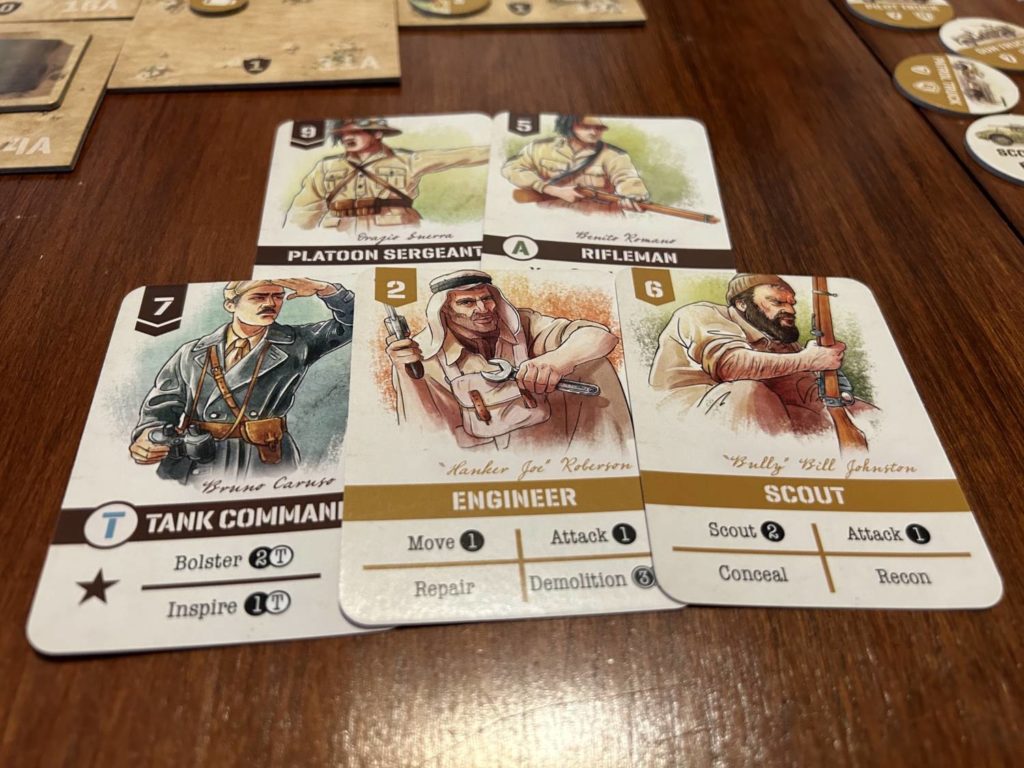
After initiative is set, each player plays out their hand, one card at a time, performing an action with the corresponding unit. A variety of actions exist within Undaunted, depending on the units represented on the board. Moving, firing, and seizing control of important tiles are standard, but there’s a lot more going on.
When you fire on an opposing unit, a 10-sided die determines whether or not the hit is a success. If you do hit, your opponent removes a card for that unit from the game. This process starts with your opponent’s hand. If they don’t have any matching cards, they then go through their discard and deck. There are few things in this world more satisfying than scoring a hit on a unit your opponent was about to use on their turn.
The application of deck-building is really cool. I don’t have more articulate words for it. Each player has their starting deck, determined by the scenario, and a pool of available reinforcements. Certain actions allow you to add units from the pool to your discard pile, changing the makeup of your deck. Additionally, you can always choose to play a card to hunker down, rather than use one of its printed abilities. These cards are placed back in your reinforcement supply, removing them from your deck. These two abilities translate, over time, into the ability to focus conflict on particular portions of the map. You can draw your enemy forces to a far side of the map before suddenly switching gears. If they don’t catch on, that’s probably game, set, and match.
Why Undaunted: North Africa, or, Do You Like Vehicles?
There are a number of tweaks to the Undaunted system throughout North Africa, but most are not significant enough to affect whether or not Undaunted: North Africa is the Undaunted game for you. Several changes, however, warrant mentioning.
Instead of the well-trod conflict between Americans and Germans on the beaches of Normandy, North Africa covers the conflict between the British Long Range Desert Group and the Royal Italian Army across colonial northern Africa. This may appeal to you over Normandy for a few reasons.
For one, it’s comparatively fresh. If you’re tired of Normandy, or not big on WWII in general, this setting may work for you. It doesn’t feel like World War II, because it’s not what we’ve been taught World War II was. Popular history has, rightfully or not, cast the Italians in WWII as the youngest sibling of the Axis Powers, the enemy it’s okay to find adorable. You don’t run into the same instinctive issues that might come from someone having to play as the Nazis. “Are we the baddies?” “Sure, but, like, we’re not those baddies.”
North Africa stands out immediately for its approach to vehicles. Normandy doesn’t have any vehicles, and Stalingrad treats them more or less like any other unit. In North Africa, vehicles are more central. Each has an oversized card that the controlling player keeps on the table in front of them. Your soldiers can climb in, occupying specific slots that correspond to specific actions. You can’t drive the light truck if you’re holding the machine gun, after all.
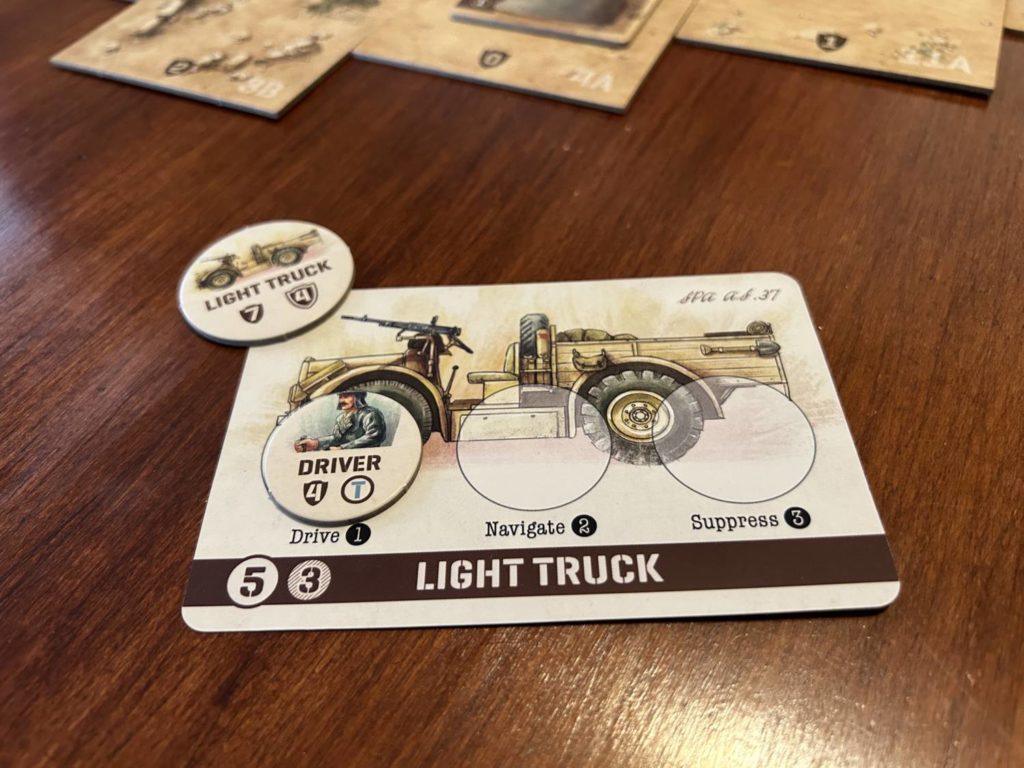
It’s worth noting, because I love it, that vehicles can be stolen. If you abandon your scout car in the middle of the desert, your opponent can climb in and drive away. I think that’s great. I think that’s funny. There can never be enough funny in game design.
North Africa is more asymmetric than Undaunted: Normandy and even Stalingrad. The units you have available to you, and your objectives, vary significantly more. To me, that makes the game feel more narratively evocative than Normandy. The sides have personality and individuation. This is further helped by the fact that each token on the board is a specific individual, not an entire unit.
Undaunted: North Africa is a terrific evolution of an already terrific system. Both North Africa and Normandy would be great choices if you’re looking for a tight, tense two-player game that lasts about 45 minutes. If you’ve already played Normandy, North Africa has enough of its own thing going on for it to be well worth the additional investment. If you’ve never played either, I would suggest going with whichever setting appeals to you more.
Having said all this, the rulebook, being British, uses the word “specialism” instead of “specialty,” so. Keep that in mind as you consider your choices.
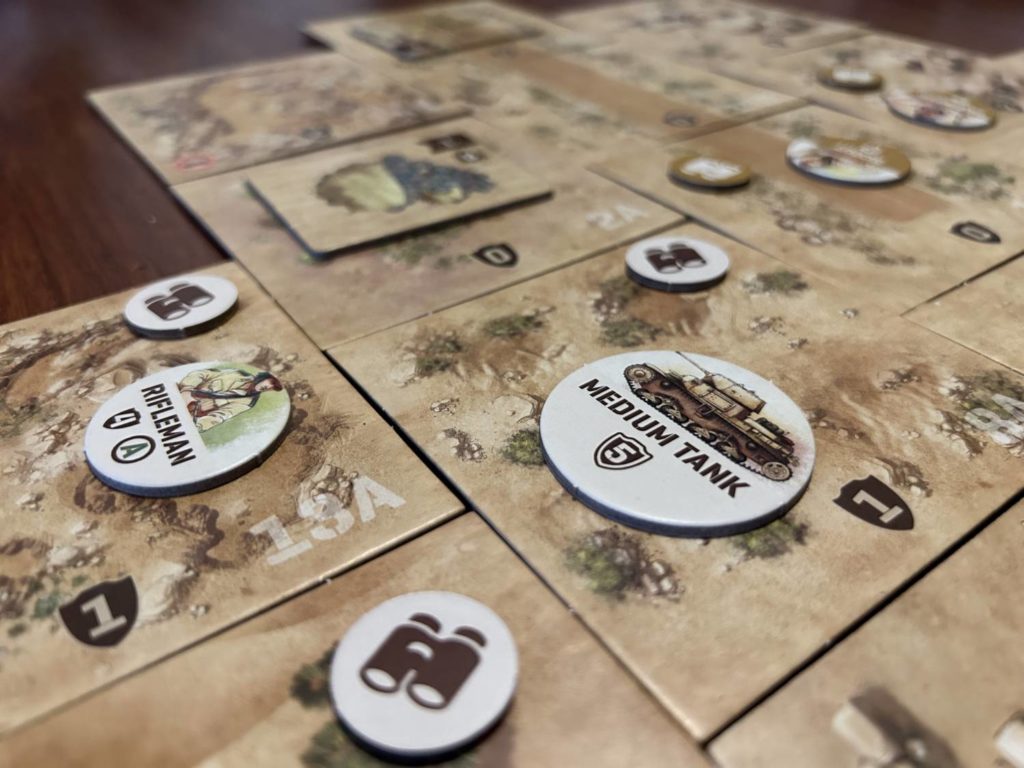


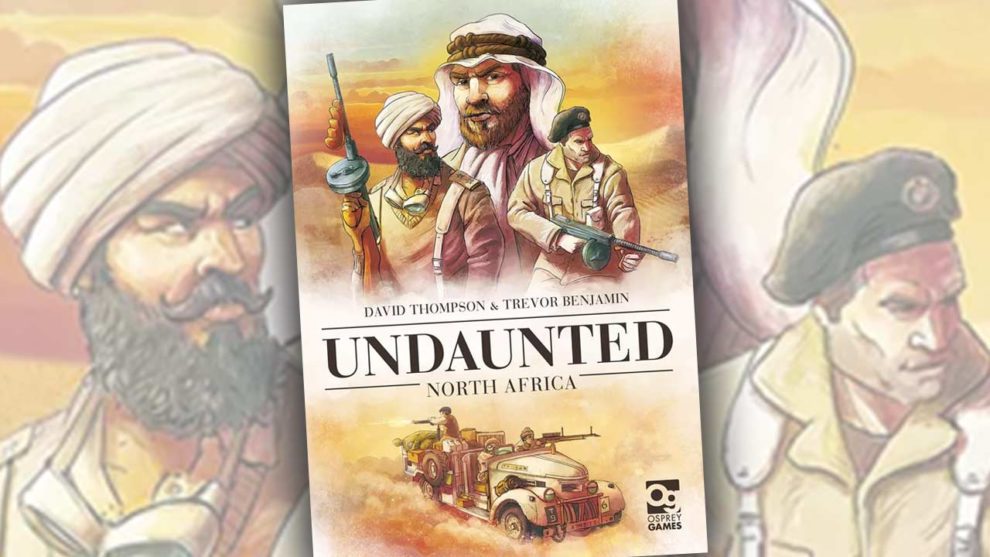



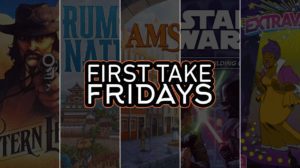




Add Comment